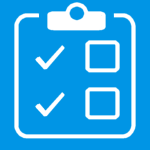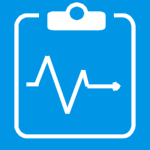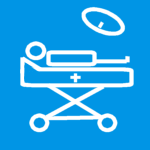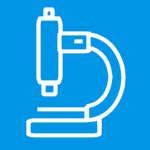Having a Colonoscopy
Your doctor has advised you to have a COLONOSCOPY. This is a procedure to examine the lining of the large bowel using a flexible tube with a light at its end. This instrument (called colonoscope) is passed through the anus (back passage) and is carefully moved around the whole of the large bowel. >From this procedure the doctor gains valuable information about the cause of your symptoms or of an abnormality previously detected by barium x-ray. Polyps (small growths in the bowel lining) can also be treated as a part of the procedure.
Before the Test
To allow a clearer view, the bowel must be completely empty of waste material. The bowel must therefore be prepared by having a restricted diet and taking a laxative one day before the colonoscopy.
Preparation the Day Before
Professor will issue a prescription for Picolax, which you need to take one day before (i.e. on Thursday if the investigation is on Friday). You must not take any solid foods after breakfast on Thursday morning. You should take the first sachet of Picolax in the morning around 10:00 and the second one around 15:30. You should also drink plenty of fluids.
Day of the Investigation
You should not take any food or drink by mouth 6 hours prior to your investigation.
Arrival
You should be at the London Bridge Hospital at 13 30 and you will require an escort home around 16:30.
During the Test
The doctor will explain more about the test and answer any further questions before starting. A small needle will be inserted into your arm or hand through which you will be given a sedative injection. You will be placed on your left side with your knees bent and the colonoscope will then be inserted into the lower bowel. Air is used to distend the bowel, this may cause some wind like discomfort. On the whole, the procedure is quite comfortable but you may experience brief periods of discomfort as the scope passes through an angle in the bowel. Occasionally, a nurse will press gently on you stomach or your position may be altered to aid the passage of the scope. The procedure usually takes about 30 minutes. During the procedure the doctor may take small samples of the bowel lining (biopsies) which you will not feel. Polyps (small growth in the bowel) if present, can also be treated during the procedure using electrical heating, you will not feel this either.
Are There Any Major Risks?
Serious adverse effects are extremely rare. Bleeding may occur after the removal of the polyps but this is uncommon and usually mild. Perforation of the bowel can also occur; however, this is also extremely rare.
After the Test
You will rest quietly in the unit until the sedative has worked off (usually around 1-1,5 hours) You may have a little discomfort from the air, introduced during the procedure that has remained in the bowel. It is essential that you have someone to escort you home and stay with you for 24 hours. He/she should come with you for the appointment or to be contactable by phone when you are ready to leave. The sedation lasts longer than you think therefore you must not drive, drink alcohol or operate the machinery for the rest of the day.
Before You Leave
The doctor will often tell you the result but you may not recall this because of the sedative effects. You may be given an appointment to come back to the hospital to see the doctor.
On the Day of the Procedure
- On arrival please give your name to the receptionist or the nurse who will ask you to wait in the waiting area until the nurse comes to prepare you for the procedures.
- Please do not wear any jewellery as the hospital cannot be liable for any lost valuables while in the department. You will also be asked to change into a gown and remove all your clothes.
- You will be asked by the nurse to help fill out a questionnaire prior to you examination.
The 24 hours After the Procedure
- Do not drive a car or a bicycle
- Do not operate machinery or do anything requiring skill or judgement
- Do not drink alcohol
- Do not take sleeping pills
- Do not go to work the day of your procedure
- Do not make any important decisions or sign contracts
- Observe any other special precautions which the doctor or the nurse may advise
- Please rest at home following your procedure



